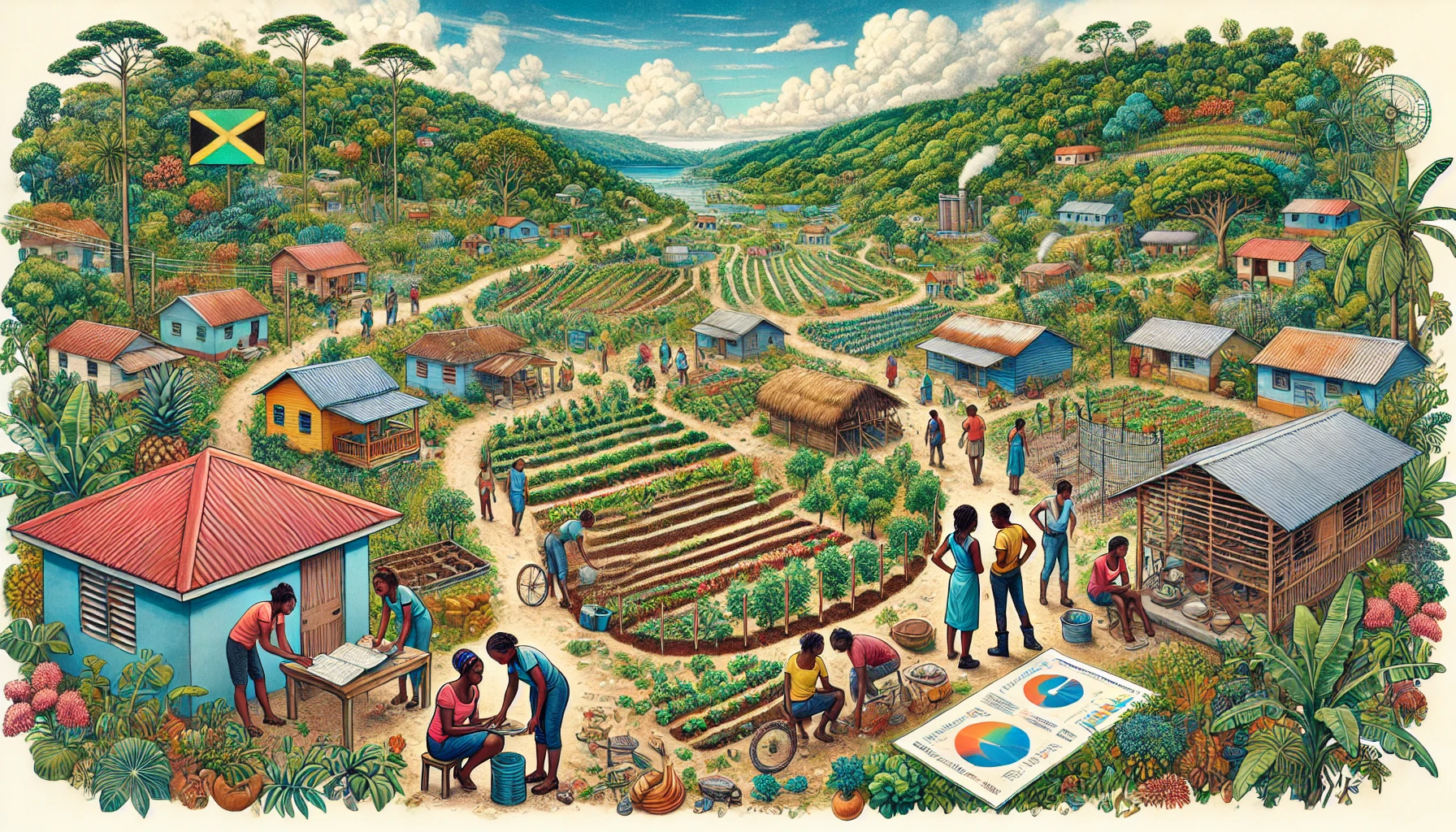Jamaica’s Gender Divide in Disaster Management: Challenges and Solutions
The report explores how gender disparities in Jamaica amplify the impacts of disasters, with women disproportionately affected due to systemic inequities in economic opportunities, caregiving responsibilities, and access to resources. It calls for gender-responsive disaster risk management policies to build resilience and empower women as key agents of change.

Research by the World Bank, the Canada Caribbean Resilience Facility (CRF), and the Global Facility for Disaster Reduction and Recovery (GFDRR), explores the intersection of disaster risk management (DRM) and gender inequality in Jamaica. It delves into how natural disasters amplify existing disparities and examines societal norms, policies, and institutional frameworks that exacerbate vulnerabilities for women. Using a conceptual framework that identifies key dimensions of gender gaps in DRM such as exposure, preparedness, and coping capacity, the report highlights how cultural, economic, and systemic inequalities disadvantage women and limit their ability to recover effectively from disasters.
The Impact of Patriarchal Norms
Jamaica’s deeply ingrained patriarchal norms play a significant role in shaping the unequal impact of disasters. Women are often assigned caregiving responsibilities, limiting their economic opportunities and access to resources. Female-headed households, which are disproportionately affected by poverty, face significant barriers to recovery due to restricted access to financial systems, land ownership, and emergency assistance. While statistical data indicates that men in Jamaica are more likely to lose their lives during disasters, women are left with the longer-term burden of rebuilding households and communities. These caregiving roles increase their physical and mental stress, with issues such as anxiety and depression becoming more prevalent among women in post-disaster settings.
Health, Education, and Economic Inequities
Disasters have a far-reaching impact on health, education, and economic stability, with women bearing the brunt of these challenges. Access to healthcare, particularly maternal and reproductive health services, often becomes disrupted during and after disasters. The economic fallout of disasters is equally significant, as women are overrepresented in informal and lower-paying sectors that are more vulnerable to disruptions. Without the financial safety net of savings or access to formal credit systems, women struggle to rebuild their livelihoods. Additionally, educational outcomes are affected, particularly for girls, as they are often withdrawn from school to assist with caregiving or household duties. These intertwined challenges further deepen the cycle of inequality, limiting opportunities for women to recover and thrive.
The Role of Policy and Institutional Gaps
Jamaica’s DRM policies, while acknowledging the importance of gender inclusion, often fail to translate these principles into actionable strategies. The lack of gender-sensitive indicators and disaggregated data limits the ability to design targeted interventions that address the unique challenges women face. Although women’s organizations in Jamaica have advocated for greater inclusion in DRM decision-making, they remain underrepresented in formal processes. This exclusion perpetuates a cycle in which disaster preparedness and recovery strategies fail to adequately address the needs of women and other marginalized groups. Furthermore, the issue of gender-based violence (GBV) remains a critical oversight in DRM frameworks. Displacement, economic instability, and heightened stress during disasters contribute to increased risks of GBV, yet support systems and resources for survivors remain inadequate.
Building Gender-Responsive Resilience
The report emphasizes the need for a comprehensive approach to integrating gender considerations into DRM strategies. It calls for stronger institutional frameworks, the inclusion of women’s voices in decision-making processes, and the collection of disaggregated data to inform gender-sensitive planning. Economic recovery mechanisms should be designed to address the unique barriers women face, such as limited asset ownership and access to credit. Targeted healthcare services, particularly for maternal and mental health, must also be prioritized. By empowering women as active participants in DRM and fostering equitable recovery systems, Jamaica can build a more inclusive and resilient society.
A Call to Action
The findings of this report underline the urgent need for reforms in Jamaica’s disaster risk management systems. Addressing gender disparities is not just a matter of equity but a critical component of effective disaster recovery and resilience-building. Policymakers, international organizations, and local communities must collaborate to address systemic inequities and empower women as central actors in disaster preparedness and recovery. Integrating gender-responsive policies will not only mitigate the impact of disasters but also unlock the potential of women as agents of change in building stronger, more resilient communities.
This report provides a comprehensive analysis of the gendered dimensions of disaster risk management in Jamaica, presenting both the challenges and opportunities for reform. By adopting a holistic approach that addresses systemic inequities and prioritizes the empowerment of women, Jamaica has the potential to lead the way in building gender-equitable resilience in the face of climate-related disasters. The path forward requires bold, inclusive action and a commitment to creating a society where resilience and equity go hand in hand.
- FIRST PUBLISHED IN:
- Devdiscourse










